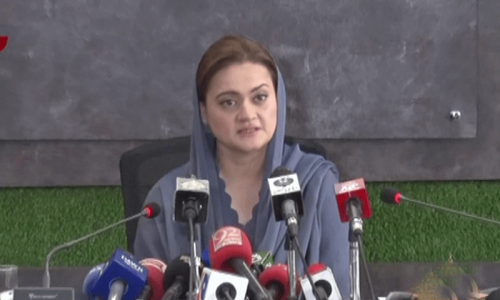KARACHI: The state in Pakistan has lost legitimacy because of its dismal failure to provide care for the labouring poor. When in recent years obscurantist movements have gained in popularity it is because they distribute welfare benefits that official agencies should provide to the citizens of the nation, Prof Dr Jan Breman observed while delivering a speech at a conference held on Wednesday at Karachi University.
The two-day international moot, Labour in the age of globalisation, was organised by the Pakistan Study Centre in collaboration with Piler (Pakistan Institute of Labour Education and Research).
Speaking on labour and poverty in today’s Pakistan, Dr Breman, Professor Emeritus at the University of Amsterdam who has worked extensively in India, said that the working classes that made up the majority of the population lacked voice as well as visibility and seemed beyond the purview of government and politics.
Regretting that governments in Pakistan didn’t even bother to collect detailed statistics on labour and poverty and that the issues of labour and poverty were not hotly debated in the media as was the case in India, Prof Breman said that he had the impression that these subjects had been discussed more extensively 30 years ago in Pakistan than now.
Referring to the popular slogan of roti, kapra and makan raised by Zulfikar Ali Bhutto, he asked had it solved the problems of the poor in later years.
“On the contrary, stark deprivation has increased and opportunities for decent employment have decreased. It means that the fading away of these themes in the policy, political and public discourse has to be analysed in the broader setting of globalisation,” he pointed out.
In another presentation on the plight of non-labouring poor, Prof Breman said that the case of people who had lost the strength to earn a livelihood on account of old age or mental and physical disabilities was more severe as compared to those who were young enough to work.
“I have seen people who are worn out at barely 45 years of age. This is because of the harsh and cruel conditions they are forced to work in. They are paupers. Being poor means you are somehow managing to make ends meet and living hand to mouth. But, these people are in abject poverty. I have seen them dying in front of my eyes because they have no food,” he said, adding that these people were not cared for by their families who considered them a burden on resources.
Sharing his observations while he was in India, Prof Breman said that Gujarat was the fastest growing state in India and, at the same time, had enormous poverty level and these startling realities were interlinked. The wealth of people above was created by the people down under, he remarked.
“Has the government seen these people? It’s not just the government in India, but also in Pakistan which fails here,” he said, stressing the need for social security for marginalised segments of society.
Dr Amrita Chhachhi, senior lecturer at the Institute of Social Studies, The Hague, said that the notion that high economic growth had led to reduction in social inequalities was a myth as statistics showed the level of inequalities had also grown extensively in countries like India and China reporting high growth while people representing a certain class were further discriminated against.
The move forward, she said, was to give people social and economic security, including entitlement to basic income and a plot of land, which was based on their citizenship right.
“Now governments can argue that they don’t have money for this. But, the fact is both India and Pakistan are big importers of arms. They are spending huge amounts of money on something which is socially destructive. They ask people to fight, but are not ready to fulfil basic needs of people,” she said.
Dr Rubina Saigol, a researcher, said that Pakistan stood very low on all indexes related to human development, health, education, gender equality and infant mortality. “If the country had high growth rates over the decades as claimed by past military rulers, where it has all gone?” she asked.
National security paradigm of the country, she said, had to change, otherwise no democracy apparatus could work.
The speakers also stressed the need for launching effective campaigns for the implementation of the minimum wage.
Arif Hasan, Dr Asad Sayeed, Dr Syed Jaffer Ahmed, Karamat Ali, Prof Dr Mohammad Qaiser and Prof Dr Zafar Iqbal also spoke.















































